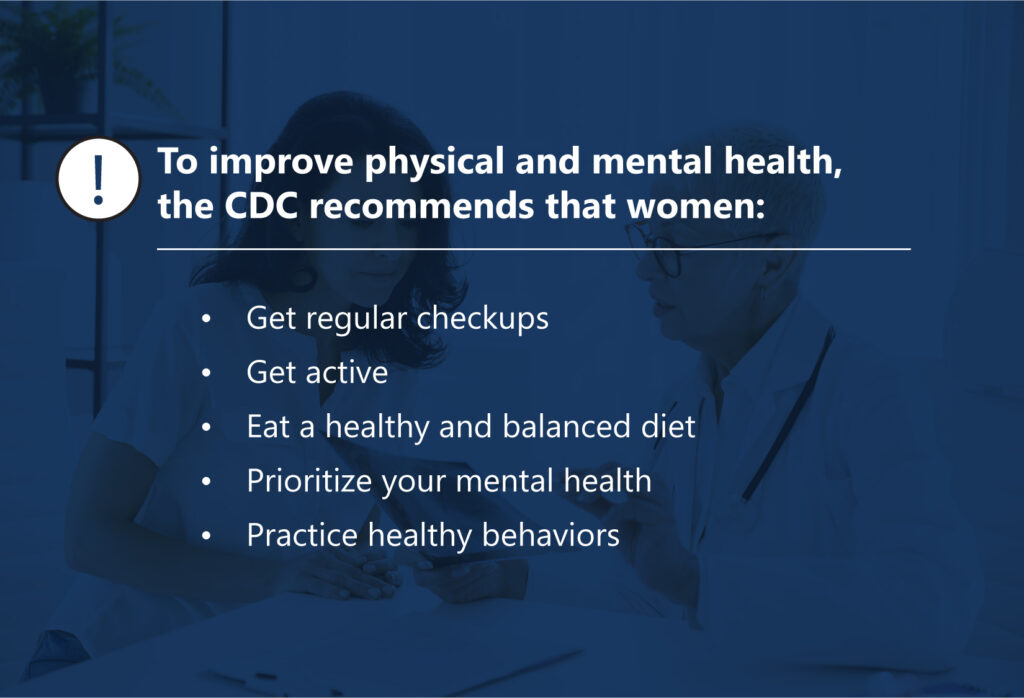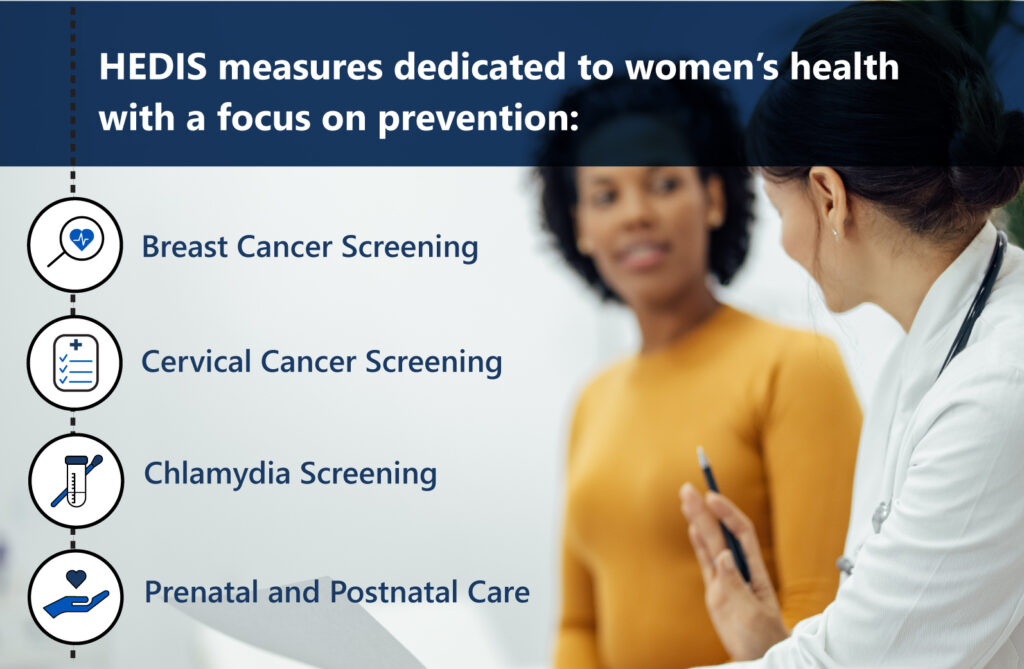
Women’s Health Week
Did you know? May 14-20 is Women’s Health Week!
Women’s Health Week is aimed to raise awareness about the manageable steps women can take to improve their health and lifestyle. Incorporating simple preventative and positive health behaviors into their everyday lives is important. One’s lifestyle organically impacts day-to-day behaviors that can lead to downstream impacts both positively and negatively. Women’s Health Week provides an avenue for others to share their experiences and enhance exposure to learning opportunities that may have not been realized. During this time of the year, women are encouraged to maintain their preventive screenings, healthy life choices and rejuvenate. ProspHire encourages women to consider the factors that influence their mental health, such as managing stress and talking about anxiety and depression.

To improve physical and mental health, the CDC recommends that women:
- Get regular checkups, including a yearly well-woman exam. Talk to a healthcare provider about any health concerns you have.
- Get active.
- Eat a healthy and balanced diet.
- Prioritize your mental health and learn how to cope with stress.
- Practice healthy behaviors. Daily decisions influence your overall health.
Why is Women’s Health Week important?
Women’s health plays an important role within the Healthcare industry that is driven by quality. It brings added awareness and accountability by way of preventative based HEDIS measures which are monitored by providers, health systems, health plans and members themselves. HEDIS (Healthcare Effectiveness Data and Information Set) is a set of standardized performance measures developed by the National Committee for Quality Assurance (NCQA), which allows direct, objective comparison of quality across a multitude of value-based care programs designed to improve the quality of care to members regardless of age, gender, finance and other social determinants.

There are specific measures within HEDIS dedicated to women’s health that focus on prevention:
Breast Cancer Screening (BCS) Women who had one or more mammograms to screen for breast cancer during the measurement year or the two years prior.
Cervical Cancer Screening (CCS) Women who were screened for cervical cancer within the eligible time frame.
Chlamydia Screening (CHL) Women who were identified as sexually active and who had at least one chlamydia test in the measurement year.
Prenatal and Postpartum Care (PPC) The percentage of deliveries that received a prenatal care visit and or postpartum visits within the eligible timeframe.
Within HEDIS performance it is expected that better outcomes lead to more enrollees, visits and overall engagement compared to competitors. Physician-specific scores are being used as evidence of preventive care from primary care office practices. These measures are also the basis for physician incentive programs such as ‘pay for performance’ and ‘quality bonus funds’.

How Can ProspHire Help?
At ProspHire, we have dedicated subject matter experts with experience supporting health plans, provider groups and health systems to yield positive quality outcomes that trickle down to enhanced patient and member experience, improved quality of care and reduced costs. Connect with one of our health care experts today.
© 2023 ProspHire, LLC. All Rights Reserved
© 2025 ProspHire, LLC. All Rights Reserved / Terms of Use / Privacy Policy





